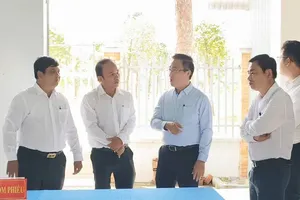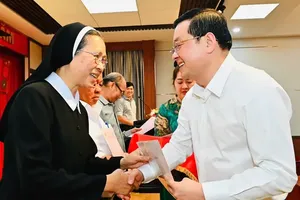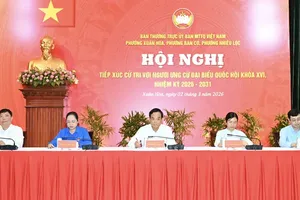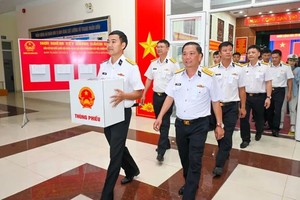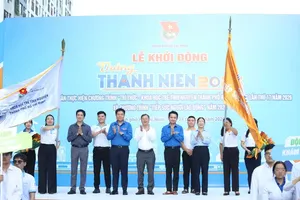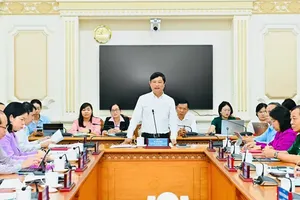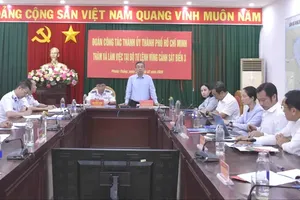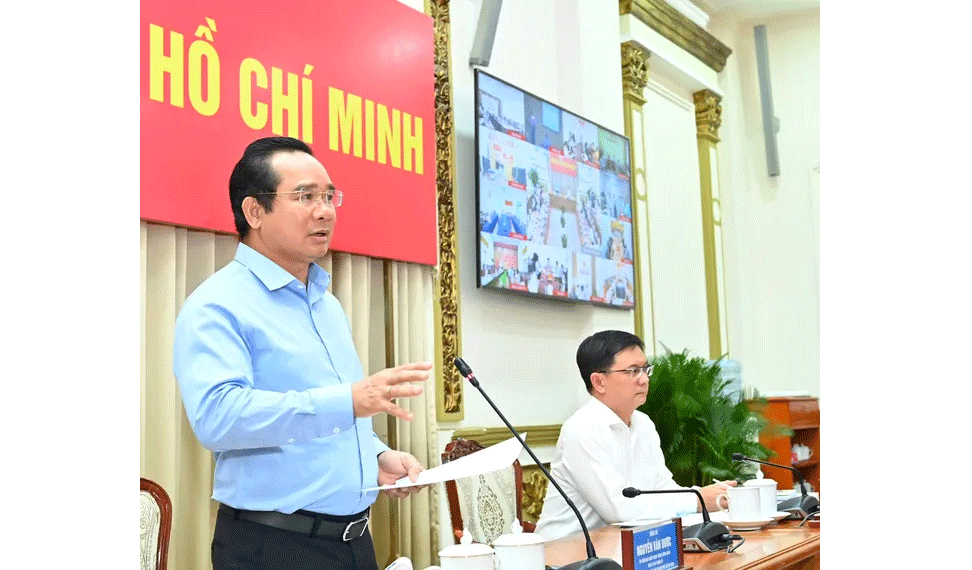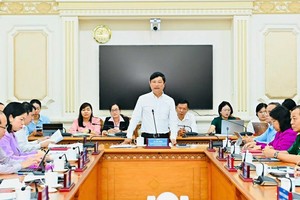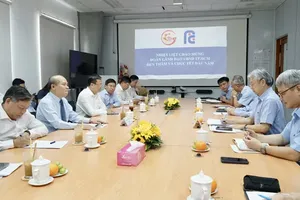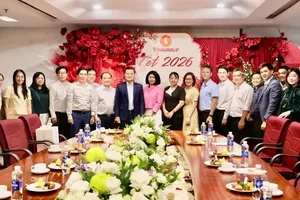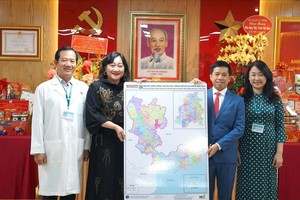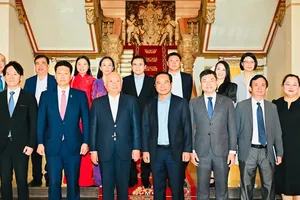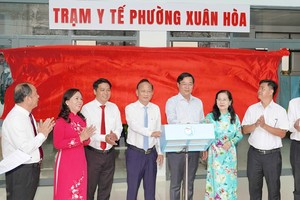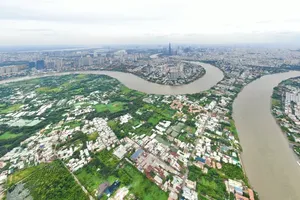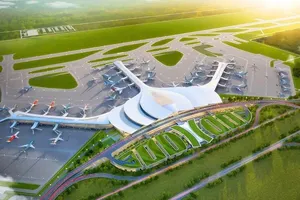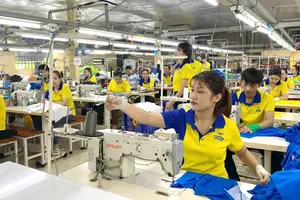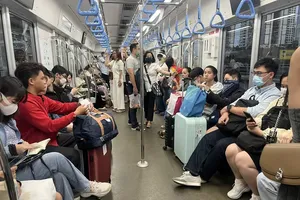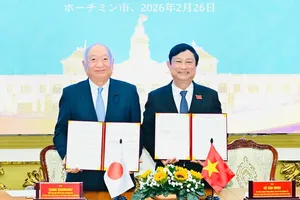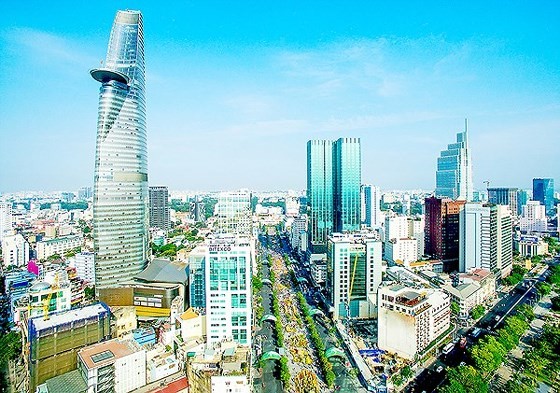
The resolution will take effect from January 15, 2018.
The resolution will pilot special mechanisms in land, invesment, finance-state budget management; stipulate authorization mechanism among government levels and payrolls of cadres and civil servants in the city.
Specifically, the resolution assigns HCMC People’s Council to decide land use purpose transfer of rice farming area measuring from 10 hectares and wider in line with rice farming area plan approved by the Government.
The council must collect residents’ opinions and affected people according to the Law on Land. The land transfer must be conducted publicly in the same order with converting the use purpose of rice farming area measuring less than 10 hectares as per the law.
In investment management, the council can decide investment policies for some projects under Group A using city budget according to the Public Investment Law.
In finance-state budget management, the council proposes special consumption and environmental protection tax hike to the Government to consider and submit to the Standing Committee to decide. The tax rate increase will not exceed 25 percent of current levels.
The council is eligible for collecting fees which are not present in the fee list enclosed with the Law on Fees and Charges, increasing fee and charge levels which have been decided by authorized agencies in the list.
The city will not pilot property tax collection. According to the NA Standing Committee’s statement, property tax directly affects the majority of residents, real estate market, competitive ability and investment environment of the city. It will create unfairness between residents in HCMC and other localities.
Hence, the NA Standing Committee proposed the NA to not stipulate the tax in the draft resolution but suggested the Government to continue studying and submit the property tax to the NA to decide and apply in the country towards improving the national taxation system in the phase of 2016-2020.
Not supplementing VND10 trillion for anti-flooding projects
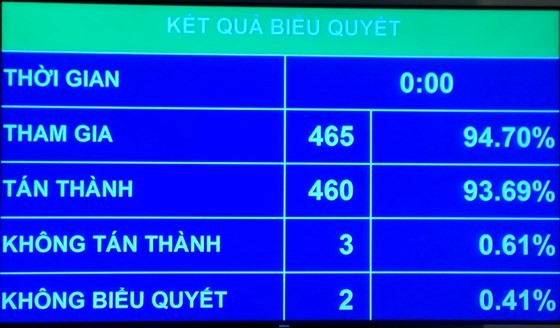 93.69 percent of deputies vote in a favour of the resolution on specific mechanisms for HCMC on November 24 (Photo: SGGP)
93.69 percent of deputies vote in a favour of the resolution on specific mechanisms for HCMC on November 24 (Photo: SGGP)
HCMC will enjoy 100 percent of revenues from increasing incomings from the adjustment of revenue policies to invest in socioeconomic infrastructures belonging to city budget’s spending mision. That will not be used for determining the percentage of revenue distribution between central and city budgets.
The city can get loans through issuing local government bonds, from domestic financial institutions and other domestic organizations and loans which the Government get abroad for re-lending. Still total outstanding loan will not exceed 90 percent of the budget revenue which the city can keep.
HCMC has been permitted to keep 50 percent of revenue from land use fee when selling public assets associated with assets on land according to the Law on Public Asset Management and Use after deducting costs on removing and building new headquarters.
The city will keep revenues from equitization and state capital withdrawal from state owned enterprises under management by the People’s Committee and divestment from economic organizations which the committee is owner representative.
This source will be used for socioeconomic development including anti-flooding projects. The central budget will not allocate VND10 trillion ($439.69 million) to implement these projects as per mid term public investment plan in the phase of 2016-2020.
Public payroll increases
HCMC People Council will be entitled to arrange its buget to increase income for public servants and cadres according to their work efficiency. Maximum hike level will not exceed 1.8 times their wages. Income for experts, scientists and special talents will be stipulated by the city.
City People’s Committee will be able to change names, functions and duties of divisions under authorized agencies of the committee to suit the city’s characteristics in association with the party and state policy on cutting down the workforce in government agencies and wage improvement.
The Government will review three year implementation of the resolution and report to the NA at the end of 2020; summarize the resolution's implementation and improve the legal system about the piloted mechanisms.
